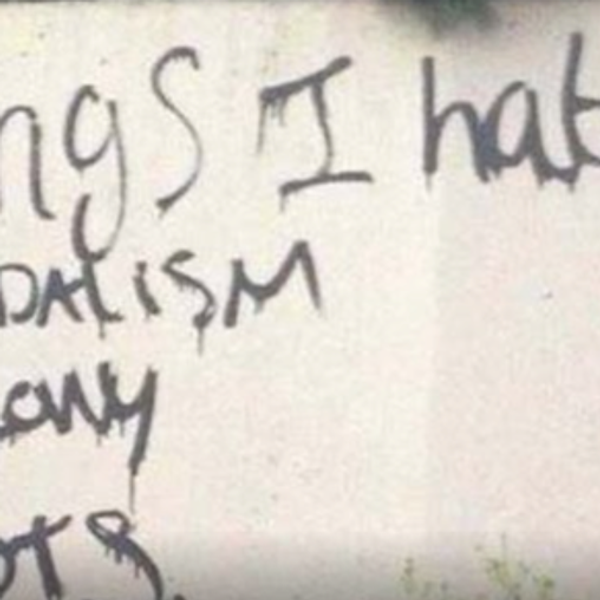Dystopian stories have dominated pop culture for years. Franchises like The Hunger Games and Divergent rack up millions of dollars. Audiences pack theaters to see the apocalyptic wastelands of Mad Max. But with politics more volatile than ever and a large chunk of the U.S. population newly terrified of the administration, will dystopian stories become even more popular?
One indicator might be the audience response to Hulu's original series The Handmaid's Tale, based on the (perhaps unintentionally) prophetic novel by Margaret Atwood. The plot follows a group of women in dystopian New England, where their rights have been severely restricted and women hold value only as long as they can reproduce.
If that seems a little too on the nose to you with regards to the recent discussions about women's reproductive rights, you're not alone.
Anticipation for the Hulu original series is already high, only helped by its Super Bowl commercial. The current heated debate about women's rights is drumming up even more interest.
It's obvious that American culture influences the literature that's released each year, but a subtler influence is our attitude about the future. For example, dystopian novels begin to overtake utopian tales during periods of economic downturn, when people find it difficult to imagine a perfect future.
Perhaps the election result will inspire a new wave of dystopian fiction, spurred on by the feelings of helplessness that quickly overtook the majority of the country. Or, alternately, dystopian portrayals could drop off in favor of something that allows readers or viewers to escape. While I doubt we'll see a dramatic shift towards utopias, movies like La La Land are clear indicators that audiences are eager for a story that lets them forget about current events.
Humans often turn to art in order to critique or make sense of the world, but just as frequently to imagine alternate possibilities. It will be fascinating to see the artistic commentaries that emerge.




















